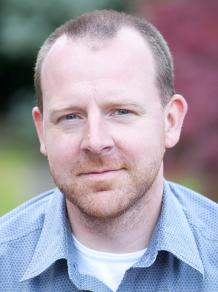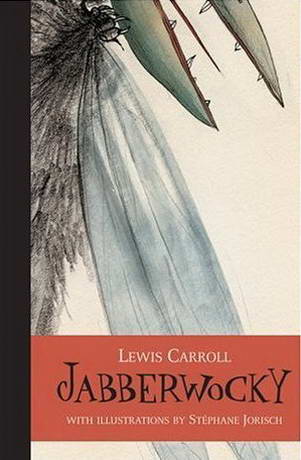 Dom Watt is a Senior Lecturer in Forensic Speech Science at the University of York. He teaches on the world’s first and only MSc programme in the subject, and has research interests in language variation and change, and sociophonetics. Here he discusses the books that inspired his early interest in the interaction of society and language.
Dom Watt is a Senior Lecturer in Forensic Speech Science at the University of York. He teaches on the world’s first and only MSc programme in the subject, and has research interests in language variation and change, and sociophonetics. Here he discusses the books that inspired his early interest in the interaction of society and language.
My parents were English teachers so our house was full of books about language, and they would always be quoting eminent writers or sharing obscure facts about word histories. Among the books I remember enjoying in childhood were those by Dr. Seuss, a peerless master of poetic zaniness and trippy, sometimes sinister, illustration. I particularly liked The Sneetches, which features characters like Sylvester McMonkey McBean, the South-Going Zax, Bodkin van Horn, Weepy Weed and Zanzibar Buck-Buck McFate, names that still tickle me.
 Lewis Carroll’s linguistic inventiveness fascinated me too. Jabberwocky is still a favourite poem, thanks to the forboding crepuscular unease that portmanteau words like brillig and tulgey evoke. I’ve never outgrown the geekiness of my youth, when hours poring over reference books seemed a diverting way to spend an afternoon. The language superlatives section of The Guinness Book of Records was probably the single biggest influence on my burgeoning childhood interest in linguistics. Before the web there was no other straightforward way of finding out, for example, that Ae is the shortest placename in the UK, or that saippuakivikauppias is the longest one-word palindrome in any language (for the record, it’s Finnish for a dealer in caustic soda).
Lewis Carroll’s linguistic inventiveness fascinated me too. Jabberwocky is still a favourite poem, thanks to the forboding crepuscular unease that portmanteau words like brillig and tulgey evoke. I’ve never outgrown the geekiness of my youth, when hours poring over reference books seemed a diverting way to spend an afternoon. The language superlatives section of The Guinness Book of Records was probably the single biggest influence on my burgeoning childhood interest in linguistics. Before the web there was no other straightforward way of finding out, for example, that Ae is the shortest placename in the UK, or that saippuakivikauppias is the longest one-word palindrome in any language (for the record, it’s Finnish for a dealer in caustic soda).
Probably predictably, Tolkien figured heavily in my teenage reading. I admired Tolkien’s determination to do fantasy writing properly: his mythology was like real mythology, and the characteristics of languages he invented for The Silmarillion and The Lord of the Rings were, as befits an Oxford philologist, based on the grammars of real ones. Teaching myself to write in Tolkien’s runic alphabet gave me a taste for non-Roman writing systems that I could then indulge in earnest at university.
By seventeen it was clear that linguistics was the subject for me, so I applied to Edinburgh to do an (undergraduate) MA in it. While waiting for the course to start I read McCrum, Cran and MacNeil’s The Story of English and much of David Crystal’s then brand-new Encyclopaedia of Language, but was bewildered by Sweet’s Anglo-Saxon Primer. I had not until that point realised that Old English was so, well, foreign, and found learning the basics a struggle. I’d done French and Italian at school but no German, so wasn’t familiar with concepts such as dative case, neuter gender or vowel mutation. Puzzling over those old texts I liked to try to imagine the long-dead people who spoke and wrote Old English. Could they really have remembered all that grammar? Why did they bother? Wasn’t life then hard enough already? Other texts that made a lasting impression were Roger Lass’s On Explaining Language Change, George Lakoff’s Women, Fire and Dangerous Things: What Categories Reveal about the Mind, J.C. Catford’s A Practical Introduction to Phonetics, and Peter Sells’s Lectures on Contemporary Syntactic Theories (not included here just because Sells is now my boss! It explained difficult theoretical material clearly and accessibly, and was less dry than its competitor texts).
After graduation and a stint teaching English in Germany, I worked for Bob Ladd on preparing the first edition of Intonational Phonology, and for Donald MacKenzie on Mechanizing Proof. The second of these isn’t about linguistics, but the work Donald provided me with did help me survive financially during my PhD, so to that extent it’s a book that has had an influence on my career. Although I chose to specialise in sociophonetics for my PhD, I confess that I enjoyed sociolinguistics texts less than books on other subjects; I found many sociolinguistics texts prolix and woolly, and preferred books about laboratory phonetics (especially Ladefoged’s Elements of Acoustic Phonetics, still a model of clarity and conciseness, Perkell and Klatt’s Invariance and Variability in Speech Processes, and Ohala and Jaeger’s Experimental Phonology), historical linguistics (in particular McMahon’s Understanding Language Change and Keller’s On Language Change: The Invisible Hand in Language), and varieties of English (Wells’s Accents of English, and Hughes and Trudgill’s English Accents and Dialects).
For my ‘must read’ nomination I’d suggest Sampson, Gil and Trudgill’s Language Complexity as an Evolving Variable, which seeks to challenge some of the doctrines of mainstream linguistics without much regard for who it upsets in the process. Linguistics, like any discipline, needs iconoclasts. For far too long there has been a tendency in some quarters to uncritically accept Chomsky’s nativist orthodoxy, and that hasn’t done the field any favours.
In my spare time I generally read non-fiction (including reference books – I said I was a geek), on popular science, mathematics, mountaineering, history, exploration, bicycle racing, biography, and language. I subscribe to New Scientist and the Times Higher. I have just finished reading Mark ‘The Inky Fool’ Forsyth’s absorbing Etymologicon: A Circular Stroll through the Hidden Connections of the English Language and Ken Alder’s The Lie Detectors: The History of An American Obsession, and am at last finishing Poisoned Lives, a double biography of the Regency poet Letitia Landon and her husband George Maclean, by Julie Watt (unabashed plug; she’s my mother). I recently started Rachel Hewitt’s Map of a Nation: A Biography of the Ordnance Survey. Next in the pile is Sinclair McKay’s The Secret Life of Bletchley Park: The WWII Codebreaking Centre and the Men and Women who Worked There.
Reading for work purposes is something I have practically no time to do, so getting through the chapters in the handsome new Oxford Handbook of Language and Law I’ve just received must be done outside working hours. The last novel I read for my own pleasure was Sovereign by C.J. Sansom, a detective story set in Tudor York. For what seems like an eternity I’ve been reading all the Harry Potter books, in sequence, to my harshly critical seven-year-old son, who constantly upbraids me for failing to give the characters their ‘correct’ voices (“Eh? Professor McGonagall is a lady, Dad”). We are almost halfway through Harry Potter and the Order of the Phoenix – rechristened Harry Potter and the Ordeal of the Phonetics – and I must say I’m awaiting the final chapter with eagerness.
——————————————————————————————-
Dominic Watt is Senior Lecturer in Forensic Speech Science at the University of York. He teaches on the world’s first and only MSc programme in the subject, and has research interests in forensic phonetics and acoustics, sociophonetics, first language acquisition, and language variation and change. He undertakes casework involving forensic speech analysis on behalf of JP French Associates, is a member of the Bayesian Biometrics for Forensics (BBfor2) research network, and is co-author of ‘Language and Identities’ (EUP 2010, with Carmen Llamas) and the new edition of ‘English Accents and Dialects’ (Hodder 2012, with Arthur Hughes and Peter Trudgill).




